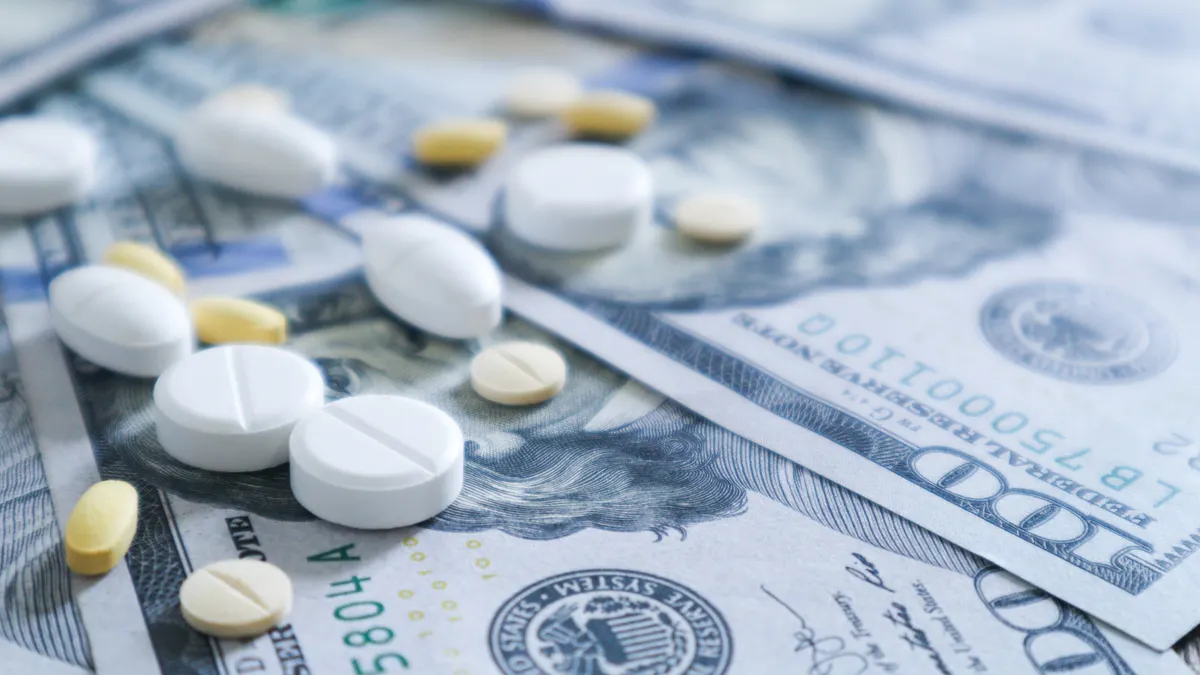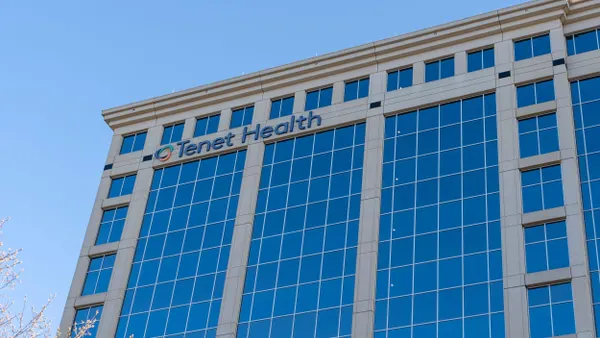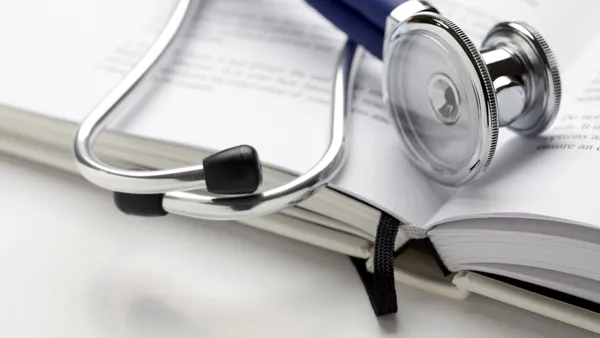Dive Brief:
- Federal regulators have greenlit eight drugmaker proposals to enact rebates in 340B, upending how savings in the massive drug discount program are normally divvied out to providers.
- The approvals were disclosed by the Health Resources and Services Administration, the HHS agency that oversees 340B, on Thursday. They include frequently prescribed drugs manufactured by companies like Bristol Myers Squibb and Johnson & Johnson, two drugmakers that sued the government after it blocked them from implementing their own 340B rebate plans.
- Hospital groups slammed the model approvals as benefiting drugmakers at their expense, with America’s Essential Hospitals calling it a “clear case of the fox guarding the hen house.”
Dive Insight:
The Trump administration announced in August that it would pilot a 340B rebate program next year to the horror of hospitals. Letting drugmakers issue rebates instead of upfront discounts on eligible drugs will force providers to float revenue, straining their ability to provide patient care, according to industry groups.
However, HRSA officials and drugmakers argue the pilot is meant to address concerns about fraud and abuse in 340B, a program formed three decades ago to help cash-strapped providers serving vulnerable patients afford prescription drugs that’s ballooned in size and spending since.
Under the pilot, 340B providers will purchase drugs through their wholesaler account and request rebates on the drugs when they’re dispensed to eligible patients, instead of receiving the discount when buying the drug.
Covered providers will have to disclose data to back up a dispensed drug’s eligibility for 340B savings, including the claim number, the prescriber’s ID and the ID of the 340B provider, to an IT platform called Beacon.
Beacon will then verify eligibility, including that a drug was dispensed at a 340B-eligible location and the claim was submitted on time, before participating drugmakers issue rebates amounting to the difference between the wholesaler price and the lower 340B price.
Once approved, drugmakers have to pay rebates within 10 days. Any companies that frequently delay payments could have their rebate model approval revoked, according to HRSA.
Drugs approved for the 340B rebate model pilot program
Hospitals say that tracking and submitting this extra data will require time and money that many facilities don’t have. Participating providers are also worried that drugmakers will look for excuses to deny valid rebates in order to avoid shelling out discounts.
“Hospitals now have to manage a whole new set of administrative burdens, requiring more bureaucracy and more paperwork, with no benefit to patients’ ability to access discounted drugs,” America’s Essential Hospitals CEO Jennifer DeCubellis said in a statement Thursday.
“Drug manufacturers are the only winners under these rebate models,” she said.
The handful of drugs that will be subject to rebates starting Jan. 1 account for a whopping amount of sales. For example, plaque psoriasis treatment Stelara is one of Johnson & Johnson’s most expensive and frequently prescribed drugs. Stelara sales reached $10.4 billion last year, accounting for almost 12% of the company’s total revenues, according to financial documents.
Similarly, Bristol Myer’s blood thinner Eliquis is the company’s top seller, with $9.6 billion in U.S. sales last year — more than 28% the drugmaker’s total revenue in the states. Fast-acting insulins Novolog and Fiasp account for a smaller percentage of sales for Danish giant Novo Nordisk, but are still some of the most commonly prescribed insulin products in the U.S.
That juncture of expensive and commonly prescribed is why all of the drugs on the list were selected for Medicare price negotiation two years ago. Revenue for the products could increase further if their 340B discounts decline, one reason why drugmakers have lobbied heavily and filed lawsuits to curtail the program.
HRSA said it might consider expanding the 340B rebate pilot to other drugs that aren’t being negotiated by Medicare in the future.














